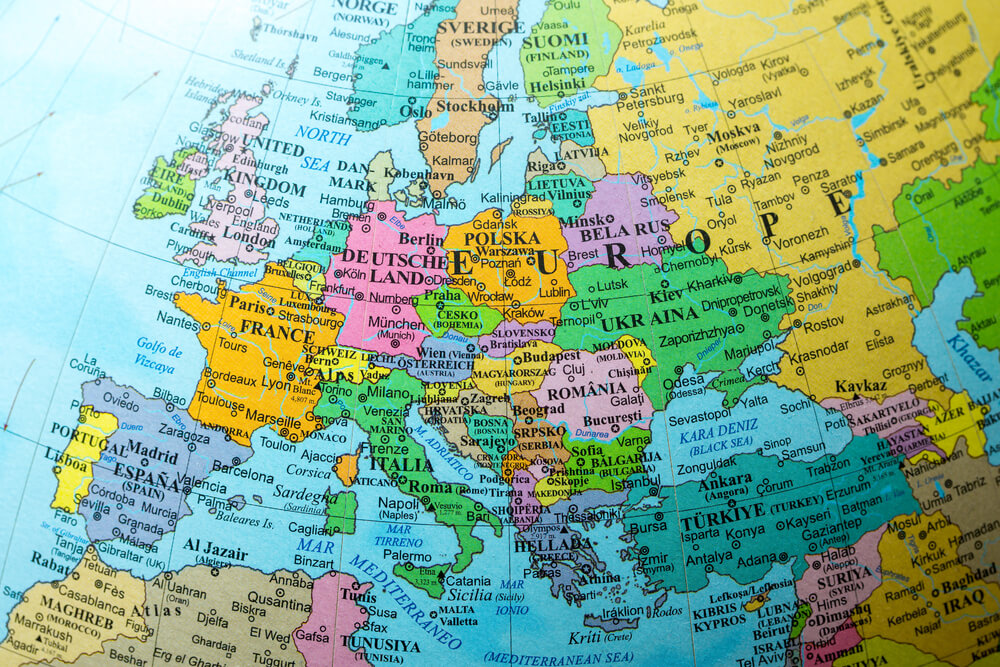It’s all coming to a head and doing so very quickly.
Since the end of World War II, the NATO alliance has essentially held Europe together.
And in recent decades, it has provided the safety net without which the whole concept of the European Union would have been impossible.
But this week, President Donald Trump has flipped the script on its head.
He bluntly told NATO allies that he is extremely unhappy with Europe’s unwillingness to pay their fair share for Europe’s defense.
He blatantly threatened that America could go it alone; i.e., withdraw from NATO.
And on his visit to the U.K., he not-so-gently slapped Prime Minister Theresa May in the face by publicly criticizing her handling of Brexit negotiations.
Back in Brussels, to avert an immediate collapse of NATO, the president did make some grudgingly supportive remarks about the alliance.
But regardless of any concessions, Trump has made it absolutely clear that he thinks the NATO alliance is obsolete.
And regardless of the outcome of his historic meeting with Russian President Vladimir Putin on Monday, future historians will undoubtedly look back at these events as the tipping point for Europe.
None of this comes as a surprise to us or our Money and Markets readers. We’ve been warning all along that the European experiment is living on borrowed time.
And now the chickens are coming home to roost — with or without Trump’s major foreign policy changes:
First, Germany’s Angela Merkel, the EU’s biggest champion, is quickly losing support.
Second, nationalism is sweeping the continent as anti-EU parties gain power in Hungary, Austria and even Europe’s largest debtor nation, Italy.
Third, Europe is caught between a rock and a hard place — an emboldened Putin flexing his military muscles … and an emboldened Trump flexing his muscles with a trade war that Europe cannot possibly win.
The last straw:
Crushing debt will break the EU’s back.
The total government debt of European Union members is now greater than it was during the worst days of the European debt crisis.
Economists generally agree that any debt burden greater than 50% of a country’s gross domestic product (GDP) is excessive.
But according to the European Debt Clock, in six important EU countries, debt levels now exceed 100% of their GDP.
Spain’s debt is 103% of its GDP.
Belgium’s debt is 106%.
Ireland’s is a tad larger at 106.5%.
Portugal’s is 129%.
Italy, with the largest economy among the highly indebted countries, has piled up debt equal to 133% of its GDP.
And Greece, despite all its austerity, is still wallowing in debt to the tune of 177% of its GDP.
Many people hold out Germany as the grand savior of Europe. But that notion is grossly outdated.
The reason: Germany itself has built up a debt pile that’s 71.2% of its GDP, giving it no more financial leeway to bail out other indebted countries.
This leaves little doubt that Europe WILL implode.
A fundamental shift is already underway. And the unrest in Europe that we’re seeing today will look like a walk in the park compared to what’s in store.
What’s next?
I’m in Brazil right now. And just a couple of days ago, at 5:30 in the morning, my colleague Sean Brodrick called me on Skype to ask that very question.
Fortunately, my laptop records all incoming Skype calls. So I have posted the recording for readers to listen in. (You can listen to the call here.)
We discussed the urgency of the current situation and realized we had an obligation to warn you, our readers, of the coming crisis.
To explain why a convergence of historic cycles before year-end will cause events in Europe to rapidly spin out of control … how this will impact the U.S. financial markets … and how the four phases of this crisis will be your chance to build four epic fortunes.
In our talk, Sean and I agreed to hold emergency briefings in three sessions next week, as follows:
• Part 1: Tuesday, July 17 at 2 p.m. EDT.
• Part 2: Wednesday, July 18 at 2 p.m. EDT.
• Part 3: Thursday, July 19 at 2 p.m. EDT.
These briefings could help you through the crisis with your wealth not only intact but growing into a money moat around your family, securing your loved ones for generations to come.
Click this link to listen to my call with Sean, and to reserve your seat for the briefings.
Good luck and God bless!
Martin D. Weiss, Ph.D.
Founder, Weiss Ratings
